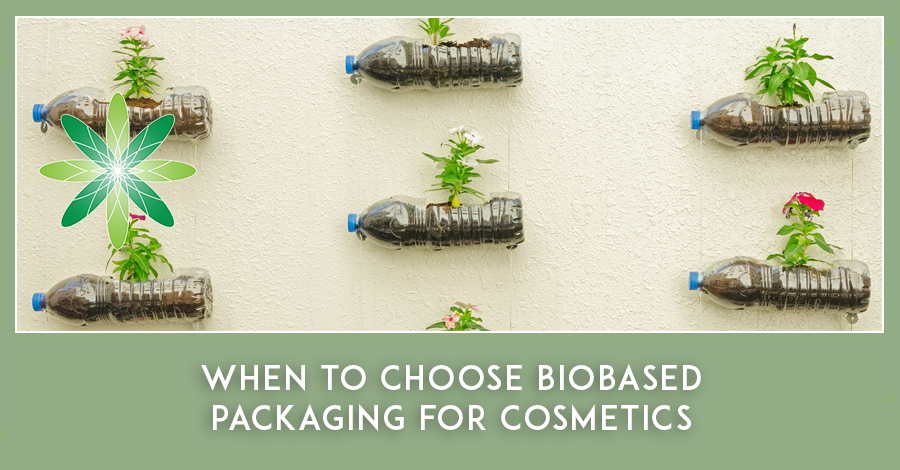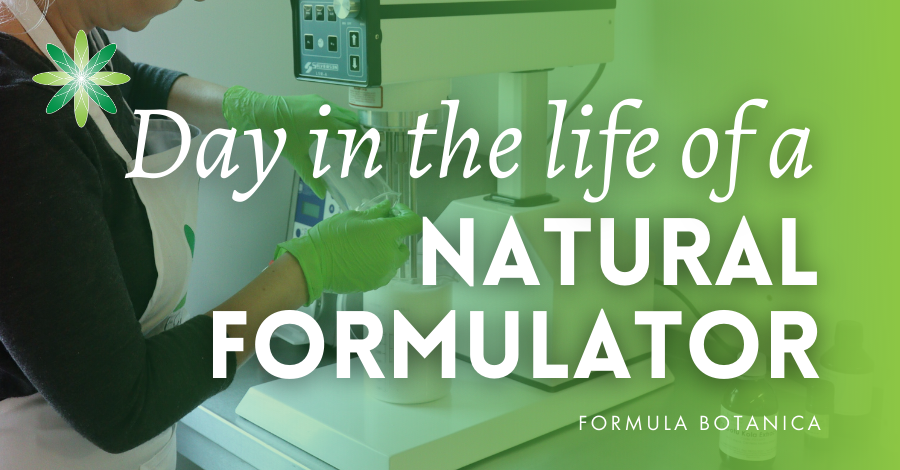Australian cosmetic regulatory landscape
You’re interested in making and selling your cosmetic products in Australia, and have been trawling through different government websites looking for the complete scope of cosmetic regulations in Australia. This post provides a general overview of the cosmetic regulatory landscape in Australia and which government agencies to contact if you have any concerns.
Note: Throughout this piece, the terms “chemical” and “ingredient” are used interchangeably as all cosmetic ingredients are chemicals.
Cosmetic regulations in Australia: the essentials
Frustratingly, there is no single resource that provides all the information you require when researching the cosmetic regulations in Australia. Here are some of the most important things to know about understanding cosmetic regulations in Australia:
- You do not require a licence to start manufacturing cosmetics.
- Good Manufacturing Practice (GMP) is not a mandatory accreditation. However:
- Your manufacturing facility and equipment are expected to be appropriately sanitised.
- You must carefully monitor air quality and process water.
- The facility should be well ventilated, temperature controlled and dust free.
- You are not required to submit your products to any government agency for safety assessments or approval before releasing them onto the market.
- Australia does not have its own pharmacopoeia, nor are there any specific government-mandated guidelines on testing cosmetics for safety and stability. Instead, we often refer to the British Pharmacopoeia, some Therapeutic Goods Orders (TGOs) as well as industry best-practice guidelines (which are open to interpretation).
- There is no checklist covering all the elements you’re required to include on a cosmetic product label.
This does not mean the Australian cosmetic industry is void of any regulations, but the Australian legislative approach to cosmetic product safety definitely takes a more self-regulated style.
The same cosmetic regulations in Australia apply regardless of your price point, the type of cosmetic product you’re making, and how or where you sell your product. So how do you know what process to follow when making and selling cosmetics in Australia? We’ve detailed the whole process for you in these 5 helpful steps:
1. Check the definition of a cosmetic in Australia
In Australia, there is a clear distinction between the definition of a cosmetic and a therapeutic good (including drugs and medicines). Cosmetic products are defined under the Industrial Chemicals (Notification and Assessment) Act 1989 and the Trade Practices (Consumer Product Information Standards) (Cosmetics) Regulations 1991 as:
a substance or preparation intended for placement in contact with any external part of the human body, including:
- the mucous membranes of the oral cavity; and
- the teeth;
with a view to:
- altering the odours of the body; or
- changing its appearance; or
- cleansing it; or
- maintaining it in good condition; or
- perfuming it; or
- protecting it.
On the other hand, products manufactured for therapeutic use are outlined in the Therapeutic Goods Act 1989:
Therapeutic use means use in or in connection with:
- preventing, diagnosing, curing or alleviating a disease, ailment, defect or injury in persons; or
- influencing, inhibiting or modifying a physiological process in persons; or
- testing the susceptibility of persons to a disease or ailment; or
- influencing, controlling or preventing conception in persons; or
- testing for pregnancy in persons; or
- the replacement or modification of parts of the anatomy in persons.
Once you have clearly defined your product as a cosmetic, the next regulatory step is to check that the chemicals you plan to use are permitted in Australia.
2. Check if the chemicals you plan to use in your cosmetics are permitted in Australia
Government agency to contact: National Industrial Chemicals Notification and Assessment Scheme (NICNAS)
Role of government agency: NICNAS administers the Australian Inventory of Chemical Substances (AICS).
NICNAS assesses the risks associated with the importation, manufacture or use of industrial chemicals – not just those used in cosmetics, but for industries like paint, printing ink, household cleaning products and glues/adhesives.
It assesses these chemicals based on their safety to the general public, occupational health and safety (workplace) and the environment. Where applicable, chemicals listed on AICS also contain secondary notifications, conditions of use or assessments which further stipulate the safety requirements.
Whilst NICNAS reviews chemicals at an individual level as opposed to cosmetic products as a whole, the Cosmetics Standard 2007 also outlines when a cosmetic product requires an expiry date.
Your compliance obligations with NICNAS:
1) You’ll need to register your business with NICNAS if you intend to import any industrial chemicals, base cosmetic products or finished cosmetic products into Australia and/or manufacture new chemicals (for example, make soap through saponification).
If you are only using Australian-based suppliers and are blending chemicals, you’re not required to register. The registration year runs from 1 September to 31 August, but you can submit an application at any time.
2) If a chemical you plan to use:
- is not listed in the public or confidential section of the AICS, or
- is listed on AICS but you plan to use it in a manner that sits outside the current conditions of use, or
- does not meet the NICNAs definition of “naturally occurring”,
then your chemical would be considered a NEW industrial chemical. You may be required to notify NICNAS of your chemical (you’ll be regarded as the “introducer” of this chemical).
Even if your chemical is not considered new, look out for secondary notifications that require you to contact NICNAS before using your chemical.
NICNAS has some examples of what it defines as naturally-occurring chemicals which you can review here to help you better understand the term.
Take this questionnaire to determine whether you are required to notify NICNAS. If you are, you may then need to apply for a permit, assessment certificate or exemption, all of which have annual reporting requirements.
If you’re required to notify NICNAS of your new industrial chemical, you MUST do so BEFORE you import and/or manufacture it.
{Side note: NICNAS is undergoing reforms which are scheduled to be implemented in July 2019. Some of the key changes are:
- Chemical introducers may have further opportunities to submit new cosmetic ingredients with limited or no pre-market notification to NICNAS without incurring an assessment fee.
- As part of your post-market compliance obligations, introducers will need to continue checking that there are no additional conditions placed on existing chemicals – however, this will be on a new inventory.
- Some public-facing functions are being enhanced that may change how introducers interact with NICNAS. For example, an online Business Service portal is being rolled out for registration, reporting, assessment applications and chemical inventory management.}
3. Check if your cosmetic chemicals are subject to poisons scheduling
Government agency to contact: Therapeutic Goods Administration (TGA)
Role of government agency: The TGA regulates therapeutic products in Australia.
It also administers the Poisons Standard which consists of:
- decisions regarding the classification of medicines and poisons into Schedules
- model provisions about containers and labels
- a list of products recommended to be exempt from these provisions
- recommendations about other controls on drugs and poisons.
Your compliance obligations with the TGA:
1) Ingredients in your cosmetic products can only appear in Schedules 5 or 6 of the Poisons Standard and not in any other Schedule.
If your ingredient is listed in Schedule 5 or 6, check the criteria outlined in the Poisons Standard. If your ingredient matches the criteria, then you must include a warning phrase, safety direction and/or a first aid instruction on your label. If your ingredient does not match any criteria, you don’t need these statements on your label.
The wording of your statement/s may vary from what is prescribed by the Poisons Standard – however, the intent must not change. If your ingredient is listed in any other Schedule, you must not use it in your cosmetics. See the TGA scheduling basics for more information.
2) In the absence of mandated cosmetic testing guidelines, you may wish to refer to the acceptable criteria in Therapeutic Goods Order (TGO) No. 77 for microbiological testing.
3) Whilst the Australian Competition and Consumer Commission (ACCC) administers the mandatory reporting and product recall process, you may also wish to refer to the TGA Recall Classes to ascertain the risk of your product’s deficiency.
4. Determine how to measure your cosmetic chemicals
Government agency to contact: National Measurement Institute (NMI)
Role of government agency: The NMI is a division of the Department of Industry, Innovation and Science and is Australia’s peak measurement body. It is responsible for biological, chemical, legal, physical and trade measurements.
Your compliance obligations with the NMI:
1) Cosmetics fall under the pre-packaged goods category. In Australia, to determine the measurement of your raw materials and finished products and how you deal with shortfalls, you can choose to comply with either the Uniform Trade Measurement Legislation (UTML) or the internationally recognised Average Quantity System (AQS).
2) There are strict formatting requirements for the unit, position, placement, character height and spacing of the measurement marking on your label. {Side note: there are 3 pieces of legislation dedicated to measurement marking alone!}
3) The legislation also sets out when you’re required to disclose the name and address of the packer, or the entity on whose behalf it was packed.
5. Understand your safety, claims and labelling obligations
Government agency to contact: Australian Competition and Consumer Commission (ACCC)
Role of government agency: The ACCC is the national competition regulator that ensures businesses supplying cosmetic products comply with Australian competition, fair-trading and consumer-protection laws.
They also administer the Product Safety Australia website which provides information to help minimise risks associated with unsafe products and sets out some of the cosmetic labelling requirements.
You can only finalise your cosmetic product labels once you’ve completed all of your safety, stability and efficacy testing.
The ACCC may investigate cosmetic brands if someone reports the brand, if the brand previously breached the Competition and Consumer Act 2010 or if an ACCC audit reveals an issue.
Your compliance obligations with the ACCC:
1) Your cosmetic product must be of an acceptable quality under labelled or customary conditions of use. Any guarantees you make about your product’s quality, safety, durability, performance characteristics and condition must hold true whether it’s on sale or sold at full price.
Note, the ACCC does not prescribe the tests you need to undertake to ensure your products meet these guarantees. The Australian cosmetic industry relies on best-practice guidelines.
2) All product claims you make about your ingredients and products must be cosmetic-type claims only, true, not deceptive and not misleading. You must be able to substantiate all of your claims, with the exception of puffery ones.
3) All the information you provide about your cosmetic products must be an accurate representation of what the product is and does – your product descriptions MUST match what the customer receives.
“Information” includes text, images, photography and videos, including how to use your products safely and effectively (for example, directions for use, general warnings and storage instructions).
4) Your ingredient listings must comply with the Trade Practices (Consumer Product Information Standards) (Cosmetics) Regulations 1991.
5) Should any adverse feedback about your products be brought to your attention, you may need to follow the mandatory reporting and product recall process.
Broader regulations to consider when making and selling cosmetics in Australia
Cosmetic regulations are not the only type of regulations you’ll need to consider when running your cosmetic business in Australia. Here are some other government agencies you may need to deal with:
- Attorney-General’s Department – Precursor chemicals to illicit drug manufacture or chemicals which may be a security concern
- Civil Aviation Safety Authority (CASA) National Transport Commission (NTC) and the Australian Maritime Safety Authority (AMSA) – Transporting dangerous goods
- Department of Agriculture and Water Resources and Department of Immigration and Border Protection – Importation of raw materials and finished products
- IP Australia – Trade marks and patents
- Safe Work Australia (SWA) – Workplace safety and the Global Harmonised System of Classification and Labelling of Chemicals (GHS)
- Department of the Environment and Energy – Environmental and sustainability matters including air, water, land and climate actions.
As you can see, there are many compliance obligations you’ll need to meet if you plan to manufacture or sell your cosmetic products in Australia. Whilst you can refer to specific government agencies for assistance, you may also wish to consider referring to an Australian Regulatory Affairs consultant who can review your products against all cosmetic regulations in Australia.
Disclaimer: The information contained in this blog post and web links on cosmetic regulations in Australia (together ‘Materials’) is for general information and educational purposes only. Nothing contained in these Materials is, or is intended to be, construed as advice. You need to decide what may work best and is suitable for your own personal or business needs. We do not have your situation in mind when we provide this content. This blog post is given in good faith but its accuracy and completeness is not warranted, nor does the author accept responsibility arising in any other way for the data or information, including but not limited to negligence, errors or omissions.
Do you have a question about cosmetic regulations in Australia? Which aspect do you find the most challenging? Leave us a comment below.
Guest Expert Bio

Geraldine is an advocate for defining beauty on your own terms. Inspired by her own 17-year pursuit of healthy skin and her companion Pierre, a stray Poodle adopted from a local animal shelter, Geraldine encourages you to embrace life the way Pierre does: by living in the present, loving without judgement and exuding wholehearted curiosity and enthusiasm in every activity you undertake.
Leave us a comment
Lorraine Dallmeier is a Biologist, Chartered Environmentalist and the CEO of Formula Botanica, the award-winning online organic cosmetic science school. Read more about Lorraine and the Formula Botanica Team.

























